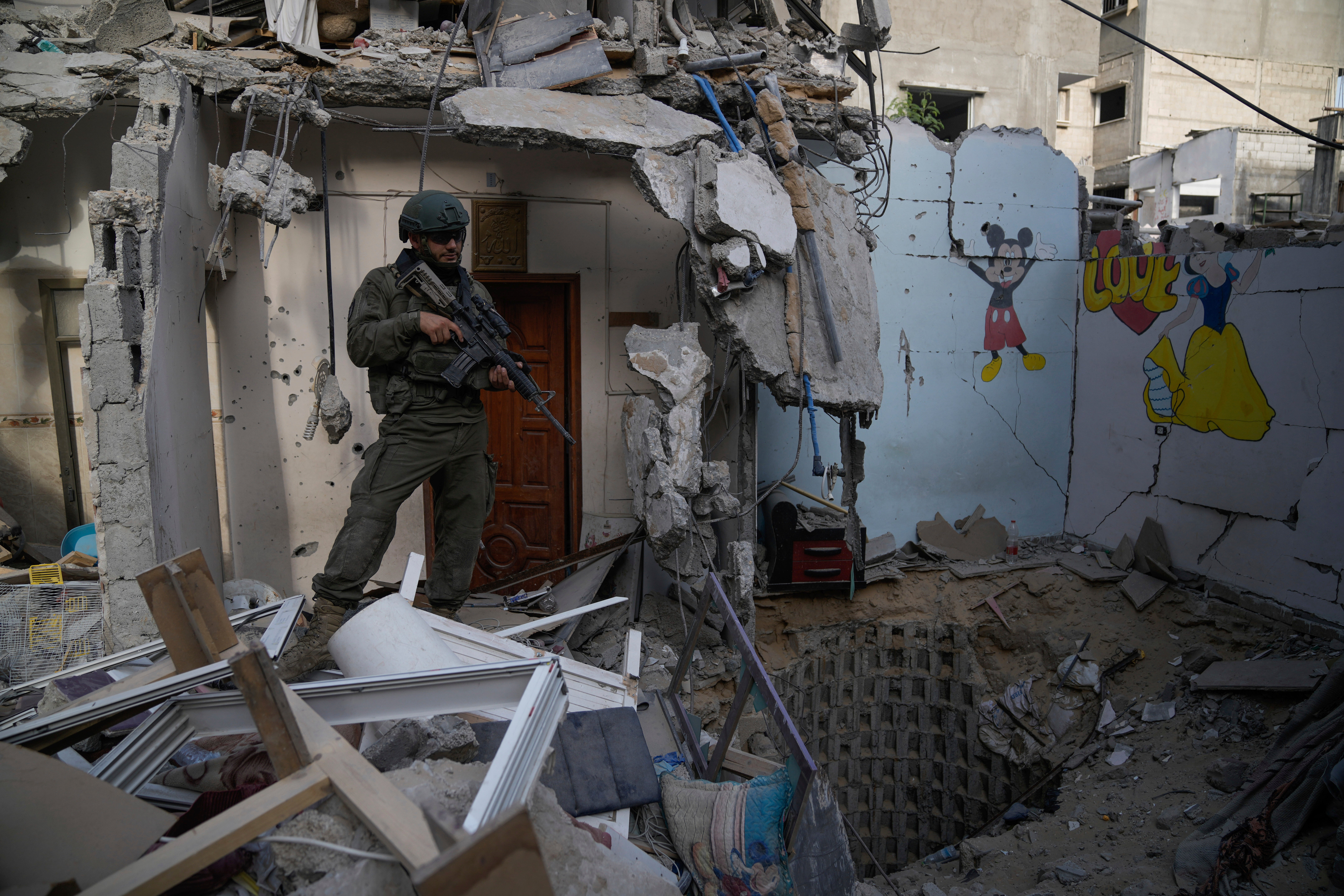US no longer expects Israel-Hamas ceasefire before Biden leaves office
Hostage and prisoner release terms reportedly a key sticking point
Your support helps us to tell the story
From reproductive rights to climate change to Big Tech, The Independent is on the ground when the story is developing. Whether it's investigating the financials of Elon Musk's pro-Trump PAC or producing our latest documentary, 'The A Word', which shines a light on the American women fighting for reproductive rights, we know how important it is to parse out the facts from the messaging.
At such a critical moment in US history, we need reporters on the ground. Your donation allows us to keep sending journalists to speak to both sides of the story.
The Independent is trusted by Americans across the entire political spectrum. And unlike many other quality news outlets, we choose not to lock Americans out of our reporting and analysis with paywalls. We believe quality journalism should be available to everyone, paid for by those who can afford it.
Your support makes all the difference.After nearly a year of conflict, senior US officials reportedly have lost hope that Israel and Hamas will reach a ceasefire deal before Joe Biden leaves office.
“No deal is imminent,” an unnamed official toldThe Wall Street Journal. “I’m not sure it ever gets done.”
“There’s no chance now of it happening,” another official, from an Arab country, added in the same report. “Everyone is in a wait-and-see mode until after the election. The outcome will determine what can happen in the next administration.”
The Independent has contacted the US State Department for comment.
Sticking points reportedly include how many Palestinian prisoners to release exchange for hostages held by Hamas, and the explosives attack in Lebanon targeting pagers used by Hezbollah, which killed at least 25 people and injured thousands.

Israel hasn’t claimed the attack, but media reports have claimed it was a joint IDF-Mossad plot.
Since October 7, the Israel-Hamas conflict has killed over 42,000 people, according to the Gaza health ministry, mostly Palestinian civilians, in a war that some international observers say has morphed into a genocide against the people of Gaza.
With a deal still elusive, the Israel-Hamas conflict is threatening to tip over into a full-blown regional conflict.
Israel has vowed that the country will pursue a “new phase of war” against Lebanon, while Hezbollah has accused Israel of crossing “all red lines” with the alleged pager plot, with Hezbollah leader Hassan Nasrallah describing it something that “could be called a declaration of war.”
The Iran-backed militant group said it “will not stop before an end to the aggression on Gaza.”
The lack of a ceasefire is putting larger US priorities at risk as well.
US negotiators have been hoping a ceasefire might facilitate their goal of Saudi-Israeli normalization, but Saudi Crown Prince Mohammed bin Salman said Wednesday the kingdom won’t recognize Israel without a Palestinian state.
The families of those held in Hamas captivity have also expressed their displeasure with the pace of negotiations.
On Wednesday, relatives of the seven American hostages still held in Gaza met with US National Security Adviser Jake Sullivan.
“The families expressed frustration with the lack of tangible progress and stressed that everyone needs to play a larger role in reaching an agreement that ensures the hostages’ safe return,” according to a readout of the meeting.
Thousands of Israelis also continue to protest and push for the release of the remaining hostages.
The US has grown more vocal in criticizing Israeli tactics in the war in recent months, but hasn’t paused military aid to the IDF, despite increase pressure after a preliminary investigation this month found that Israeli soldiers likely killing American activist Aysenur Eygi during a protest in the West Bank.

Join our commenting forum
Join thought-provoking conversations, follow other Independent readers and see their replies
Comments